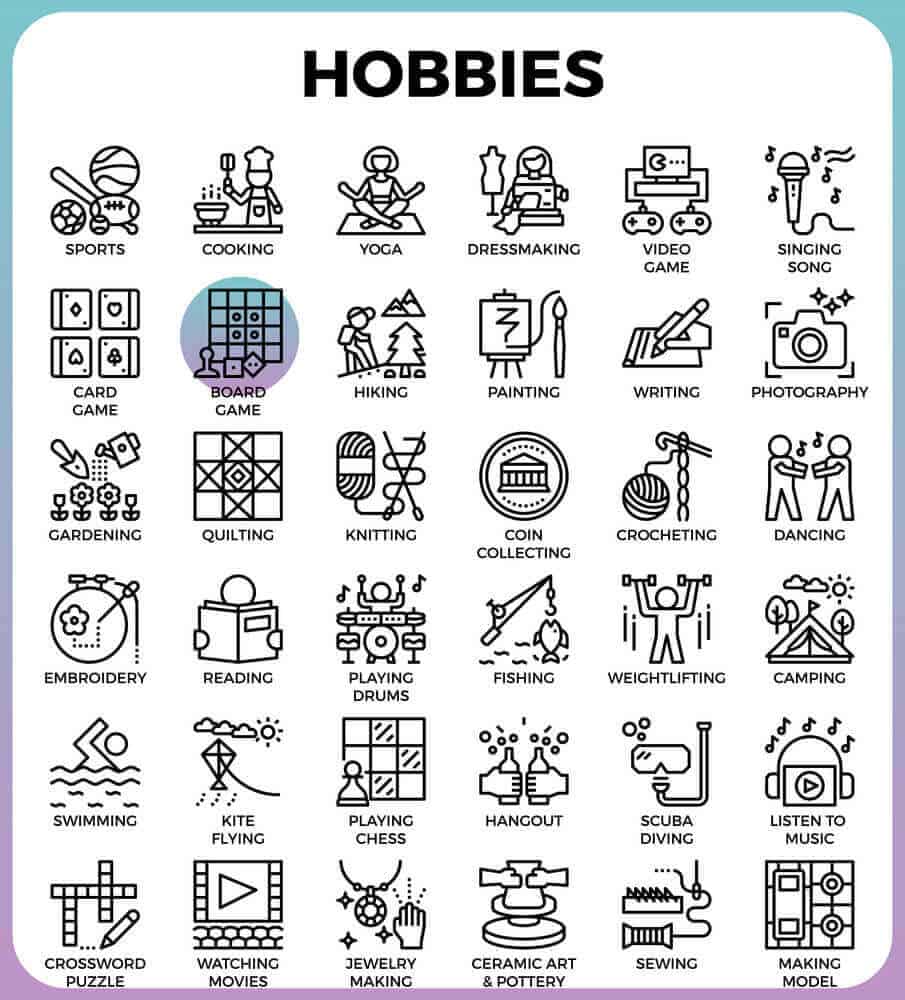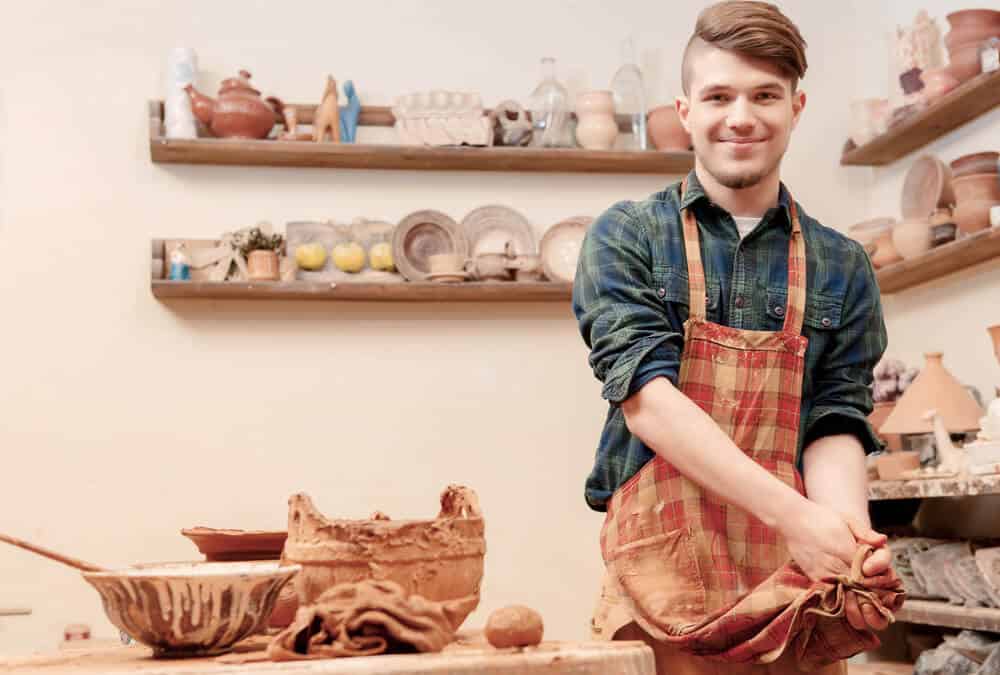Most people enjoy hobbies, which can be anything from playing sports to collecting stamps, and they reveal a lot about your interests and values.
While your hobbies may not define you, hobbies shape your personality.
Being passionate about a particular hobby can make you more driven and determined. Like spending time outdoors? If yes, well, it can make you more adventurous and spontaneous. However, if you like to spend time alone, it can make you more introspective and reflective.
Do Your Hobbies Reveal Your True Self?
If you want a better sense of who you are, look no further than your hobbies. From book clubs to basketball leagues and everything in between, hobbies tell a lot about our interests, personalities, and values.
Our hobbies can greatly reflect our personality and what we value in life. For example, those who enjoy spending time in nature may appreciate physical activity and adventure. In contrast, someone collecting stamps or rare books may highly value history and knowledge.
Those who enjoy puzzles or strategy games may be introspective and analytical, and those who attend social activities like dance classes or team sports may be extroverted and outgoing.
Our hobbies can also give us a better sense of our interests and passions. If you enjoy painting, you may be interested in art or design, or if you are into sports, you may be interested in health and fitness. Those passionate about personal growth or achievement will enjoy activities that challenge mentally or physically, and those interested in self-expression are likely to participate in creative pursuits like writing or pottery.
Of course, there are always exceptions, but it’s still interesting to consider how you might connect your hobbies to your personality type.
Hobbies And Personality Traits Defined
Hobbies are activities that we enjoy doing. They can be anything from reading and hiking to playing sports and collecting stamps. We usually choose our hobbies based on our interests, so they can say a lot about who we are as people. They provide clues about your interests, values, and preferences and reveal how you like to spend your time and how you prefer to interact with the world around you.
Personality traits, on the other hand, are qualities that make up our unique personalities. These can include things like being shy or outgoing, independent or dependable. We are born with our personality traits, which usually don’t change much over time.
So, what does this all mean? It means that hobbies can shape our personalities, but they are not the same as personality traits. Our hobbies can give us clues about our personality traits. Hobbies are something we do, while personality traits are something we are.
How Do Hobbies Shape Your Personality?
Hobbies are often activities that we enjoy doing in our free time. They can range from simple things like gardening or cooking to more complex pursuits like playing a musical instrument or building model cars.
Hobbies have a positive effect on our personality. They can help us develop new skills and interests, express our creativity, and give us a sense of accomplishment and pride.
Hobbies can shape our personality in many ways. We may become more adventurous and outgoing if we enjoy doing something physical like hiking or biking. We may become more imaginative and creative if we enjoy doing something creative, such as painting or writing. Hobbies can also help us to develop our sense of discipline and responsibility if we take the time to practice and perfect our skills.
The Importance of Hobbies in Modern Society
In today’s modern society, hobbies are more important than ever. It is now considered a fundamental way to help shape your personality.
The way you spend your free time says a lot about you as a person. Hobbies can give insight into your passions, interests, and values. They can also reveal how creative or outgoing you are. Finally, hobbies can tell employers a lot about your work ethic and potential job performance.
While some people see hobbies as a waste of time, they can benefit your mental and physical health. Hobbies can help reduce stress, improve cognitive function, and increase happiness. When you engage in activities that you enjoy, it can help take your mind off of worries and concerns. In addition, they can provide opportunities for you to have support and friendship, which are essential for good mental health. The positive emotions can help offset negative ones, such as anxiety and depression.
The best hobbies are those that reflect your unique personality. Hobbies you are passionate about can help you feel more fulfilled and happy.
Hobbies also affect your self-esteem and confidence. It shows in your attitude and demeanour when you enjoy what you are doing. This can improve social interactions and success in other areas of your life. If you share a hobby with others, it gives you a common ground to connect on.
Physical health is also positively impacted by having a hobby. Hobbies, such as gardening or hiking, in which you are active improve your fitness level, whereas other pursuits, such as cooking or knitting, can help you develop better motor skills. Hobbies involving social interaction can also help reduce loneliness and isolation, improving physical health.
The Best Ways to Choose a New Hobby
Sometimes, finding a hobby that is the right fit for you can be challenging. For example, maybe you’ve tried a few things but haven’t seen anything that sticks. Or perhaps you are frustrated or stuck in a rut with a hobby you used to enjoy but no longer do.
If that’s the case, don’t worry! There are many leisure activities out there to try and to help you find the perfect one; we’ve put together this list of the best ways to choose a new leisure activity.
1. Pick something that interests you
When choosing a new hobby, it will be helpful to know what interests you. If you’re not interested in what you’re doing, then it’s likely that you won’t stick with it for very long.
Think about the things that you enjoy doing or always wanted to do and try to find a hobby that aligns with those interests. Hobbies like hiking or gardening might be a good fit if you enjoy outdoor activities, but hobbies like painting or photography could be perfect if you enjoy being creative.
Find a hobby you will enjoy by choosing one that fits your personality. That way, you’re more likely to stick with it, which will be a more positive experience.
2. Consider your goals
When choosing a new hobby, consider your goals.
What do you hope to accomplish by taking up this new hobby? Do you want to use it as a way to relax and de-stress? Are you looking to meet new people? Or are you hoping to develop a new skill? Are you looking for something active or passive? Something social or solitary? Something challenging or easy?
Knowing your goals can help narrow down which hobbies are right for you. Participating in leisure activities like dance or cooking classes could be a good option if you want to meet new people. However, if you’re looking to relax, something like yoga or meditation might be a better choice.
3. Start small
If you’re unsure about how much time or effort you want to put into a hobby, it’s okay to start small. However, don’t try to take on too much at once or you’ll quickly become overwhelmed and discouraged.
Instead, start with something manageable and realistic for you. For example, if you’re interested in painting, start by taking a class or two instead of trying to teach yourself. Or, if you want to start hiking, begin by hiking trails close to home before venturing out further.
4. Try new things
Be open to trying new things. Just because you don’t like one thing doesn’t mean you won’t enjoy another. Go outside your comfort zone and experiment and explore until you find something you are passionate about.
5. Talk to others
If you’re still having trouble finding a hobby, talk to other people who share your interests. You may find they provide some helpful suggestions or recommendations.

The Best Hobby For Introverts and Extroverts
It depends on what you’re interested in and what you enjoy doing, but what hobbies are best for introverts and extroverts?
There are a vast array of activities an introvert may enjoy, and the guide Solos Hobbies For Introverts shares in detail these hobbies. In general, introverts may enjoy solitary activities like reading, writing, or hiking. Extroverts may enjoy hobbies that will enable them to be around other people, such as playing sports or attending social events.
Ten hobbies for introverts:
1. Reading
2. Writing
3. Hiking
4. Playing an instrument
5. Painting
6. Drawing
7. Photography
8. Collecting items
9. Watching movies or TV shows
10. Cooking or baking
Ten hobbies for extroverts:
1. Playing sports
2. Attending social events
3. Going to concerts
4. Participating in group activities
5. Cheerleading
6. Volunteering
7. Public speaking
8. Acting
9. Being a part of a club or organization
10. Traveling
Personality Type and Hobby Match
There are many different personality types, but here are some of the most common and the leisure activities that they typically enjoy:
- Sensitive and compassionate: volunteering, animal rescue, or environmental work.
- Analytical and detail-oriented: puzzles, Sudoku, or crossword puzzles.
- Creative and expressive: painting, photography, writing, or music.
- Fun-loving and outgoing: social, sports, or adventure activities.
- Independent and self-reliant: hiking, biking, or kayaking.
Final Thoughts
Your leisure activities say a lot about you as a person. They can be an extension of your personality and even impact your personality development, physical and mental health. So choose leisure activities that fit your unique personality and that you enjoy.
Check out our quiz Am I Satisfied With My Leisure.
Hobbies are a great way to get to know ourselves better. So the next time you’re looking for a new hobby, consider what it might say about your values, interests, personality, and passions.






